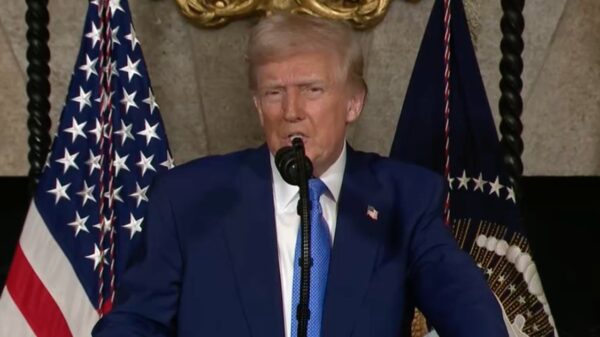This week, U.S. Rep. Michael Waltz, R-Fla., introduced the U.S. House version of the “Taxpayers and Savers Protection (TSP) Act” which U.S. Sens. Marco Rubio, R-Fla., and Rick Scott, R-Fla., are championing in the U.S. Senate.
Earlier this month, Rubio brought back the “Taxpayers and Savers Protection (TSP) Act” with the support of Scott and U.S. Sens. Jeanne Shaheen, D-NH, and Todd Young, R-Ind. The bill will ensure the Federal Retirement Thrift Investment Board (FRTIB) will not send federal retirement savings to China. Rubio first introduced the bill at the end of last year.
“It is absolutely unacceptable that the Chinese Communist Party and government continues to profit from the retirement accounts of U.S. government employees and members of the military,” Rubio said. “Congress can’t sit on the sidelines and allow the TSP Board to fund Beijing’s rise at the expense of our nation’s future prosperity and national security interests.”
“The TSP Act would conditionally ban the investment of Thrift Savings Plan funds in securities listed on mainland Chinese exchanges. In particular, it would prohibit investment in issuers listed on foreign securities exchanges where America’s Public Company Accounting and Oversight Board (PCAOB) has not issued an audit inspection and where the PCAOB is prevented from conducting such inspections,” Rubio’s office noted.
“The TSP Act would stop the FRTIB from moving forward with a short-sighted decision to shift the Thrift Savings Plan’s International Fund Index to the MSCI All Country World ex-U.S. Investable Market Index that includes Chinese companies under U.S. sanctions and U.S. export bans. The FRTIB currently plans next year to begin investing the retirement assets of federal government employees, including members of the U.S. Armed Forces, in opaque Chinese firms engaged in human rights abuses and a wide range of military-related activities, effectively funding the Chinese government and Communist Party’s efforts to undermine U.S. economic and national security. The move would also place federal savers and their beneficiaries at risk by directing their savings into Chinese firms that fail to live up to the accounting and financial disclosure levels that are standard in developed markets,” Rubio’s office added.
In the last Congress, then-U.S. Rep. Mark Meadows, R-NC, championed the proposal in the other chamber but he left the House to serve as then-President Donald Trump’s chief of staff. Walltz took over as the House sponsor.
“It is absolutely crazy to propose our military and federal employees to indirectly contribute to China’s military buildup, oppression of minority groups, and ultimate goal of global takeover through retirement funds,” said Waltz, the first Green Beret to serve in Congress. “What’s worse is that nearly all of these Americans are completely unaware of this situation.
“Imagine sending our brave soldiers overseas to fight against our enemies and then telling them they have been footing the bill for our adversary’s military operations,” Waltz added. “This is completely unconscionable and needs to be taken off the table.”
Waltz rounded up almost 20 co-sponsors, mostly from the Republican side of the aisle, including Florida Republican U.S. Reps. Mario Diaz-Balart, Neal Dunn, Matt Gaetz, Brian Mast and Bill Posey.
The bill was sent to the U.S. House Oversight and Reform Committee.
Reach Kevin Derby at kevin.derby@floridadaily.com.




















